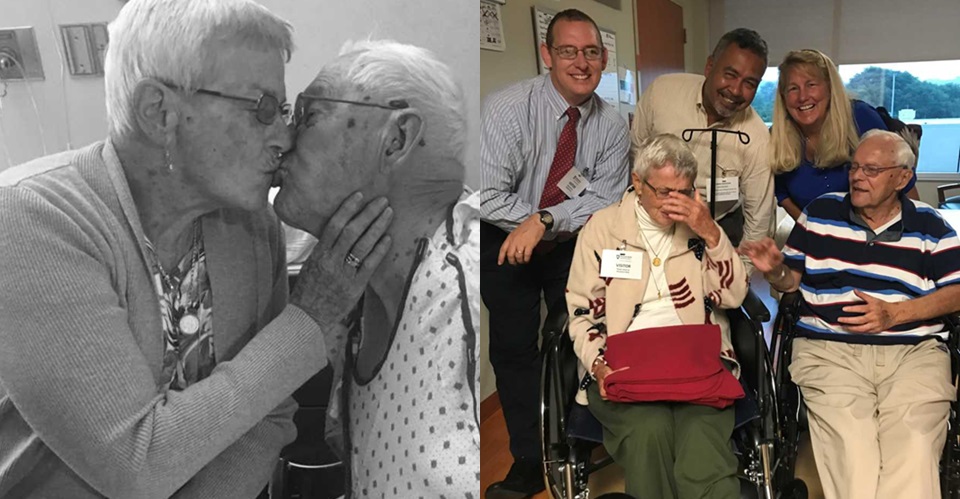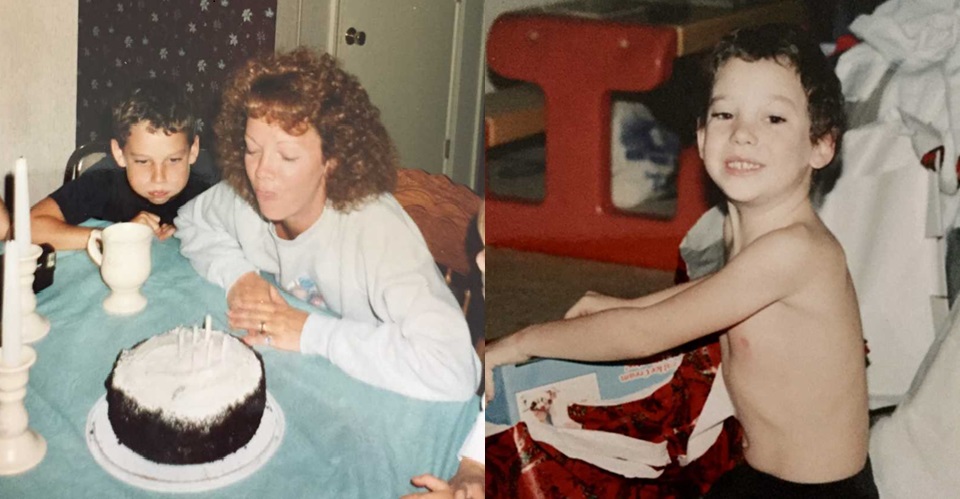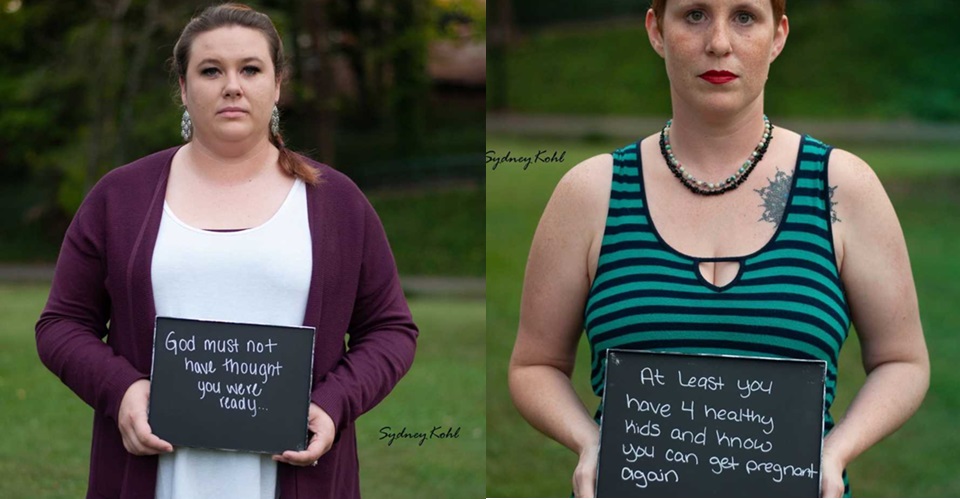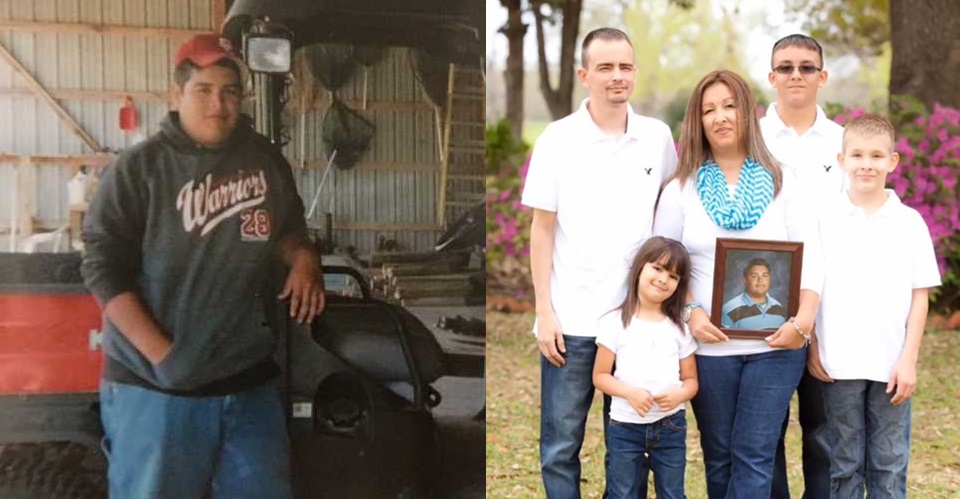In a small Pennsylvania town, a family found themselves facing the hardest chapter of their mother’s dementia journey. After months of struggle, endless sleepless nights, and the creeping exhaustion of constant caregiving, they made a decision that broke their hearts but protected their mother’s safety; they moved her into an assisted living home.
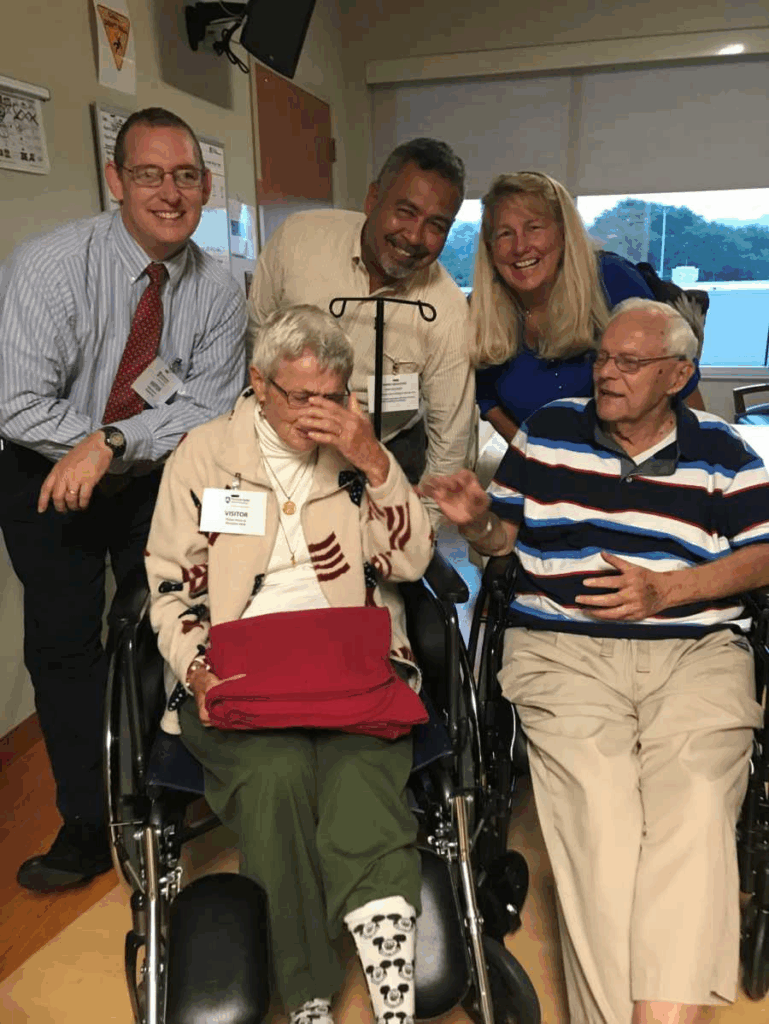
Her dementia had progressed quickly, turning once simple routines into unpredictable challenges. She needed help with nearly everything—eating, dressing, bathing—and though her children had done everything they could, there were not enough hours in the day to keep her safe. Even with in-home care, the math never worked out; there were always more hours than helpers, and more needs than hands to meet them.
It started as a practical choice, but it didn’t feel helpful. It felt like failure, like surrendering something sacred. The family toured several facilities, each more sterile than the last, until they entered a small, cozy assisted living home that smelled faintly of coffee and furniture polish. The staff smiled when they walked in; they spoke gently to the residents and didn’t seem in a hurry. The home felt lived in, not managed. There were no harsh fluorescent lights or cold tile floors, just rocking chairs on the porch, quilts folded neatly on beds, and the hum of soft conversation.
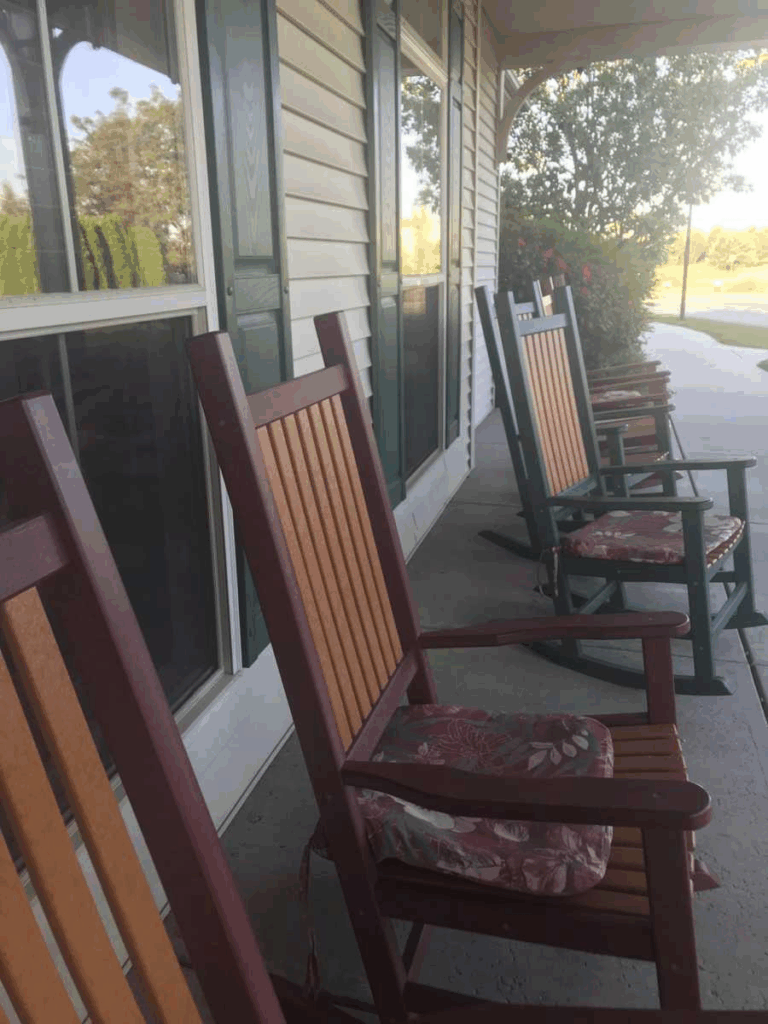
They asked every “what if” they could think of. What if she was awake all night, or wanted to do the same activity repeatedly? What if she didn’t want to leave her room, or wandered the halls in her wheelchair? Each answer was met with calm reassurance; the staff said she could do whatever made her comfortable. It was the family’s first feeling a small flicker of peace. So, they moved her in. They brought her bed, favorite photos, kitchen table, and worn but beloved sofa. They tried to make the room look as close to home as possible. That night, when it came time to say goodbye, no one could meet each other’s eyes. They kissed her goodnight and walked out of the room without turning back. It felt like walking away from a part of themselves.
The director texted the next morning. Their mother had been awake until 3 a.m., chatting with the staff until she finally drifted off to sleep. She was safe; she was cared for. It didn’t erase the ache, but it softened it. When they visited, she explored her new surroundings, wheeling down the halls and adjusting small decorations as if she’d lived there for years.
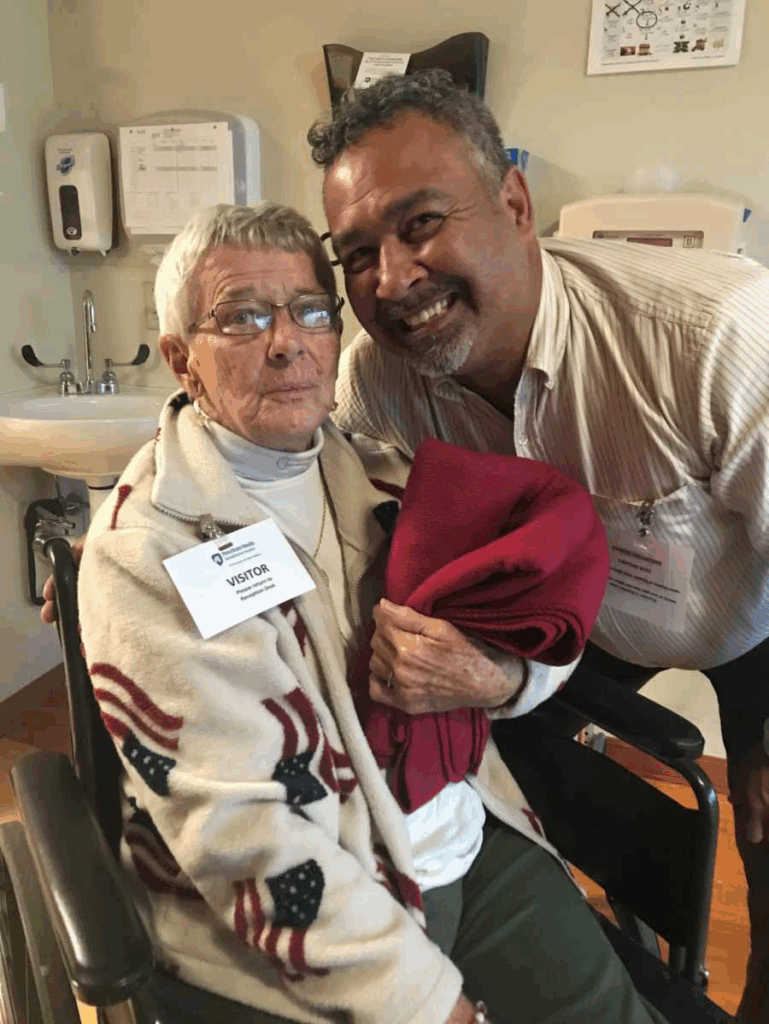
But not every day was good. One morning, her daughter visited and found her in pain. The neurologist had halved her medication, claiming that people with advanced dementia “don’t really feel pain anymore.” That sentence hit like a punch to the chest. It was untrue, and it was cruel. Her family saw the pain etched in her face, and they fought to have her medications corrected. That day was filled with tears, frustration, and the profound helplessness of watching someone you love suffer without being able to fix it.
The next day, though, was better. Her smile returned. She folded linens, again and again, completely content in its rhythm. She recognized her children, greeted them joyfully, and spoke her husband’s name clearly during their visit. Her husband, still recovering from surgery in another facility, had been aching to see her. When she asked him if he was coming with her, the words were clear, sweet, and full of memory. There were still moments of chaos that would have made her laugh in another lifetime, like when she refused to get out of the car after a visit, gripping her daughter’s arm so tightly that it took both sisters to ease her back into her wheelchair gently. The staff probably laughed later, watching the video footage of two grown women walking backward down the hallway, half laughing, half crying, guiding their mother to her room.
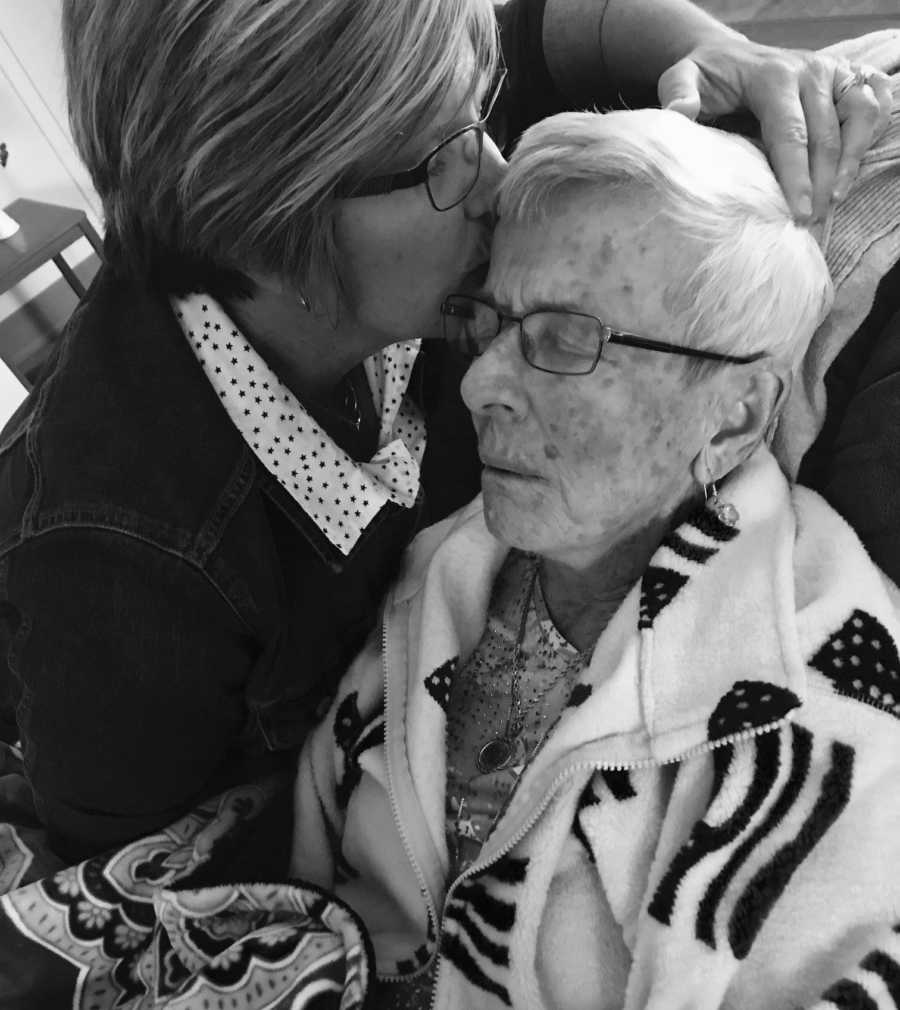
Soon, their father joined her in the assisted living home. For him, it didn’t matter where they were; as long as she was beside him, life was right. The family cried often, sometimes out of sorrow or love. Each tear was a true reminder of what it means to care for someone through decline. Grief became part of the rhythm of their days, but so did gratitude. They learned that sadness is just love with nowhere to go, and that letting go, even a little, doesn’t mean giving up.
This was their new normal, a family walking side by side through their mother’s dementia journey, finding moments of laughter, tenderness, and grace within the heartbreak of caregiving and change. In the quiet corners of that assisted living home, love remained the one thing that never forgot its way home.
